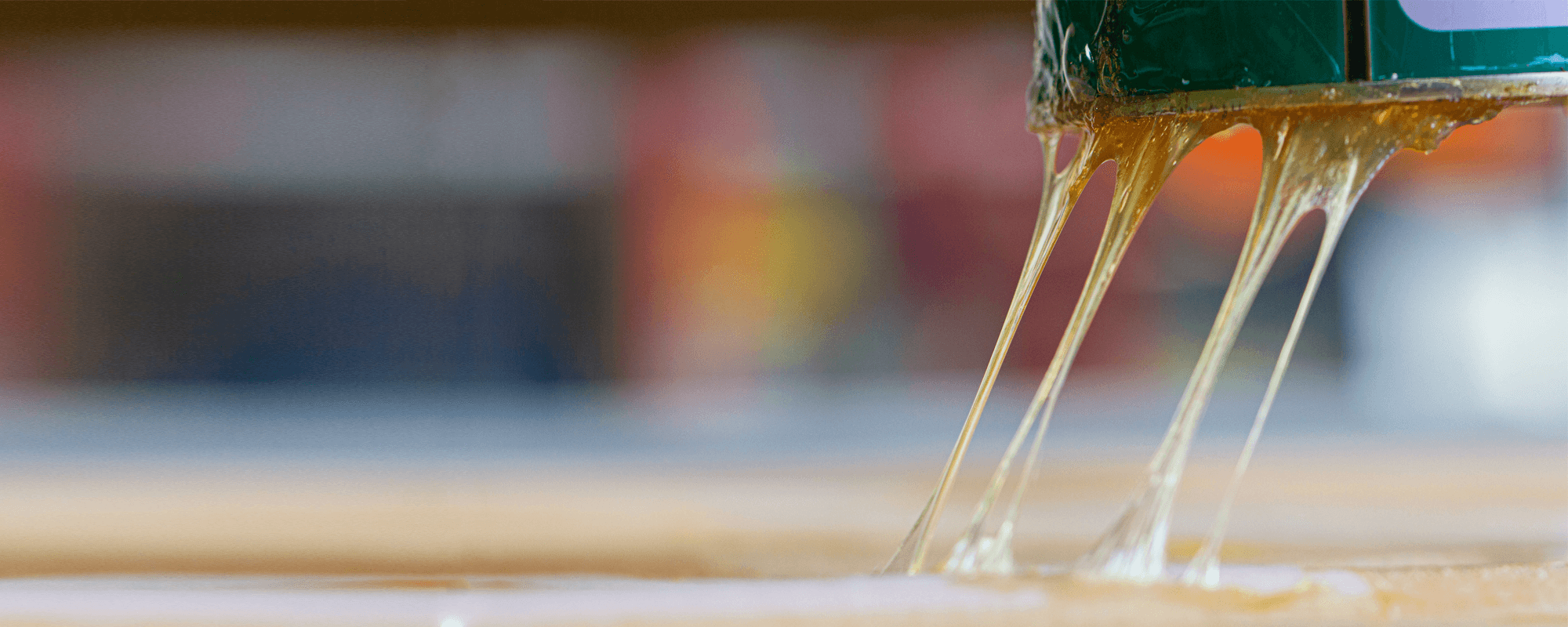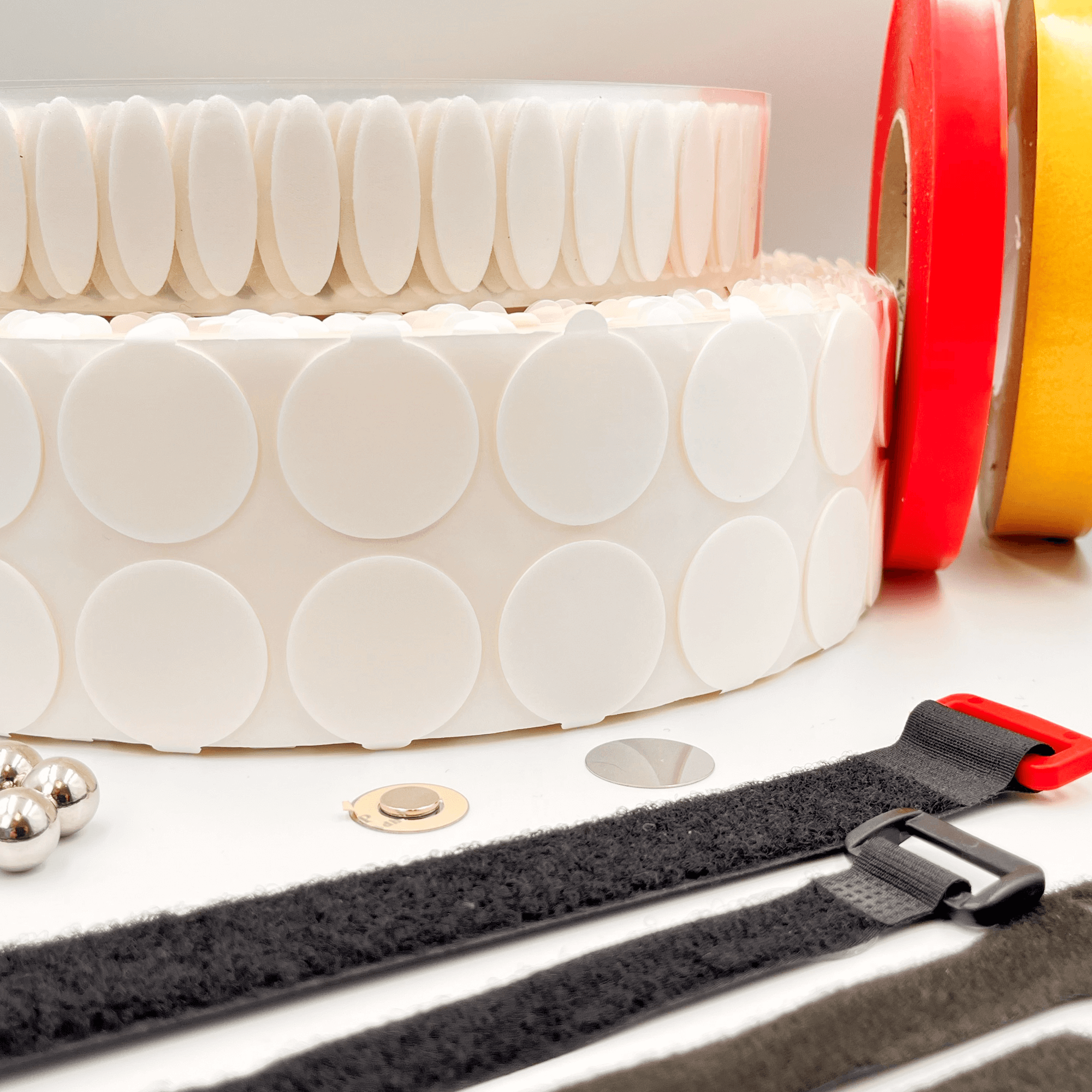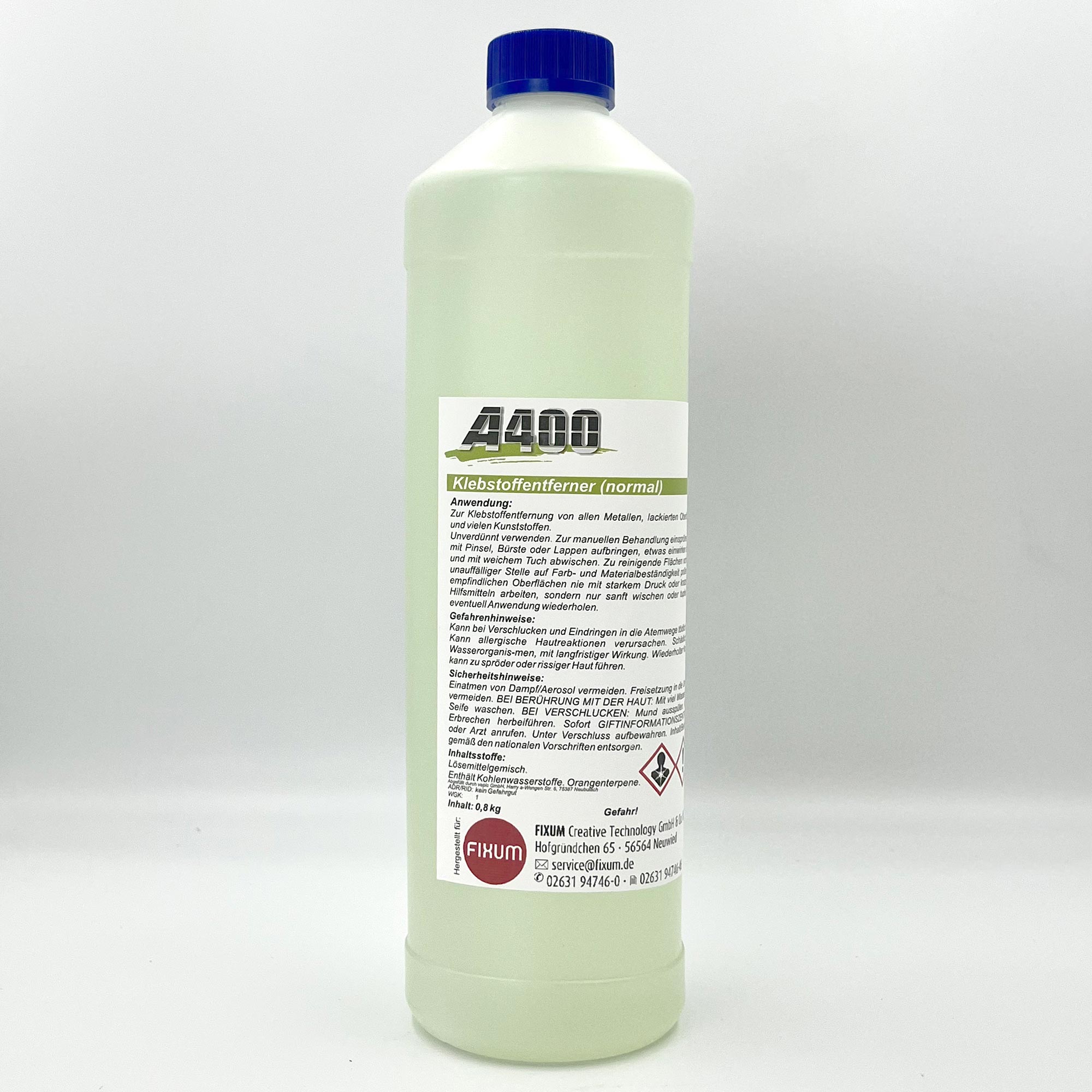
Effective adhesive removal: FIXUM's A400 gently removes stubborn residues in industrial plants and bookbinderies
How to do it: Simply remove adhesive residue
Effective removal of adhesive residues in industrial operations
The use of adhesive tape and other pressure-sensitive adhesives is ubiquitous in industrial companies. Whether for fixing components, packaging products or binding books - the demands on adhesive performance are high. However, when adhesive tapes are removed, stubborn adhesive residues often remain, which can contaminate surfaces and hinder further processing. To solve this problem effectively, there are various methods and speciality cleaners that are tailored to the needs of the industry.
Use of solvents
For many industrial applications, classic solvents such as isopropanol and white spirit are suitable for removing adhesive residues. These are widely used and relatively inexpensive. For particularly resistant residues, however, stronger solvents such as acetone or ethyl acetate come into play. Although these are more effective, they are also more aggressive and can attack the substrate. It is therefore important to test the solvent resistance of the material on an inconspicuous area.
Specialised cleaners: FIXUM's A400 adhesive remover
The A400 adhesive remover from FIXUM has been developed to reliably remove adhesive residues while treating surfaces more gently than many conventional solvents. This cleaner should also be tested for material resistance on an inconspicuous area before large-scale application.
Application of the A400 adhesive remover
- Preparation: The affected area is sprayed thoroughly with A400 Adhesive Remover or the cleaner is applied with a brush or cloth.
- Contact time: A contact time of around ten minutes is usually sufficient. A longer contact time may be necessary for particularly thick layers of adhesive, for example it is possible to soak soiled parts in the adhesive remover for a longer period of time. Patience pays off, as a longer exposure time makes it easier to remove the adhesive residue.
- Cleaning: After the reaction time, the cleaner and the dissolved adhesive residue can simply be wiped off with a cloth. The application can be repeated if necessary.
- Neutralisation: The remaining cleaner can be neutralised with water and rinsed off to ensure a clean surface.
Practical tips for industrial use
- Test on an inconspicuous area: To avoid material damage, solvents and cleaners should always be tested first on an inconspicuous area or on a reject part.
- Sensitive materials: Caution is required, especially with painted or specially treated surfaces. Aggressive solvents can cause irreversible damage.
- Protective equipment: When using chemical cleaners, suitable protective equipment such as gloves and safety goggles should always be worn to avoid skin and eye irritation.
Special requirements in bookbinderies
Clean and undamaged surfaces are particularly important in bookbinderies. The use of conventional solvents can be problematic here, as they can attack the sensitive materials. The A400 adhesive remover offers a gentle alternative that is nevertheless effective against adhesive residues. Here too, the following applies: First test on an inconspicuous area and repeat the application if necessary.
Conclusion
Removing adhesive residue is a challenge in both industrial companies and bookbinderies. However, this problem can be solved effectively with the right agents and methods. Whether conventional solvents such as isopropanol and white spirit or specialised cleaners such as the A400 adhesive remover - there is a suitable solution for every application. It is always important to proceed with caution and to test the agents on inconspicuous areas first in order to avoid damage.
By using these cleaning methods, industrial companies and bookbinderies can optimise their processes, keep surfaces clean and ensure the quality of their products. Try out the various alternatives and find the right method for your needs to effectively remove adhesive residues.



